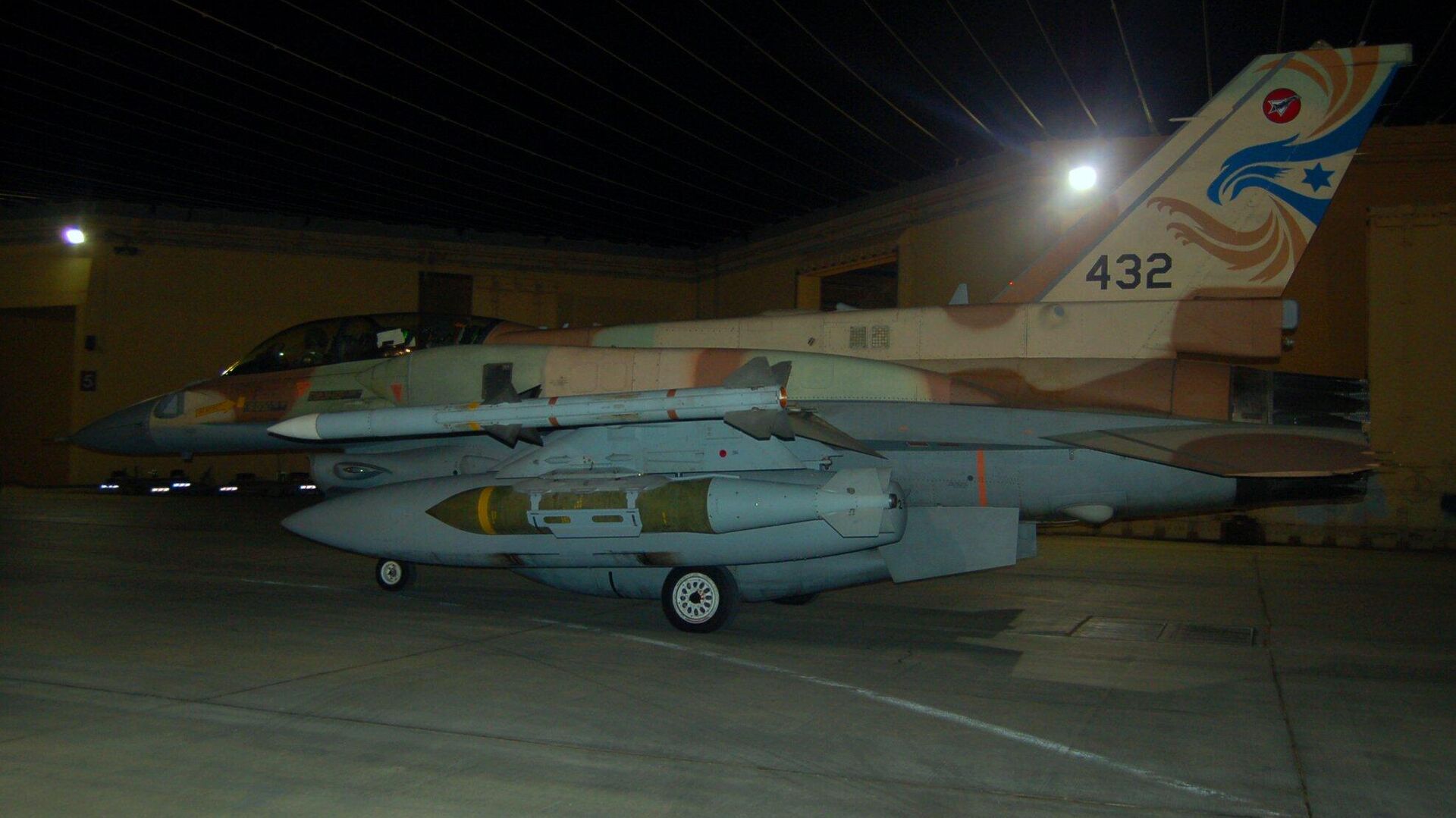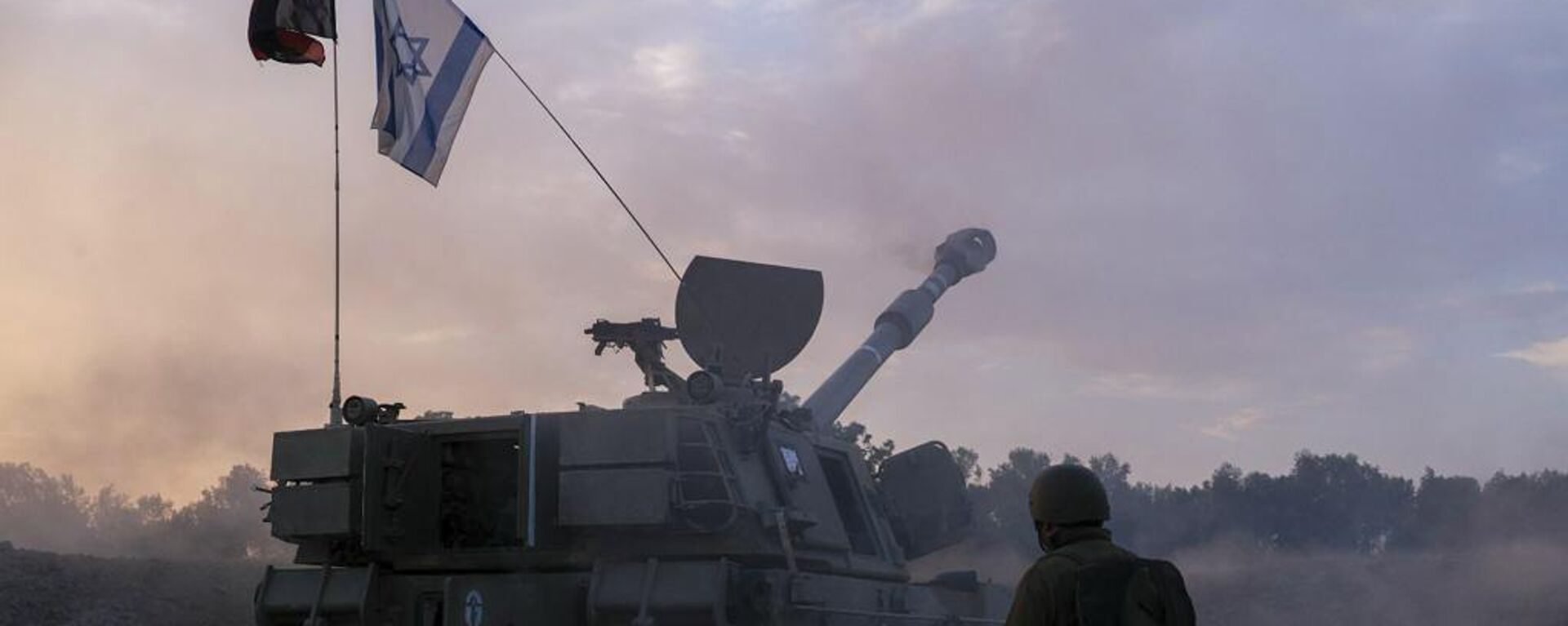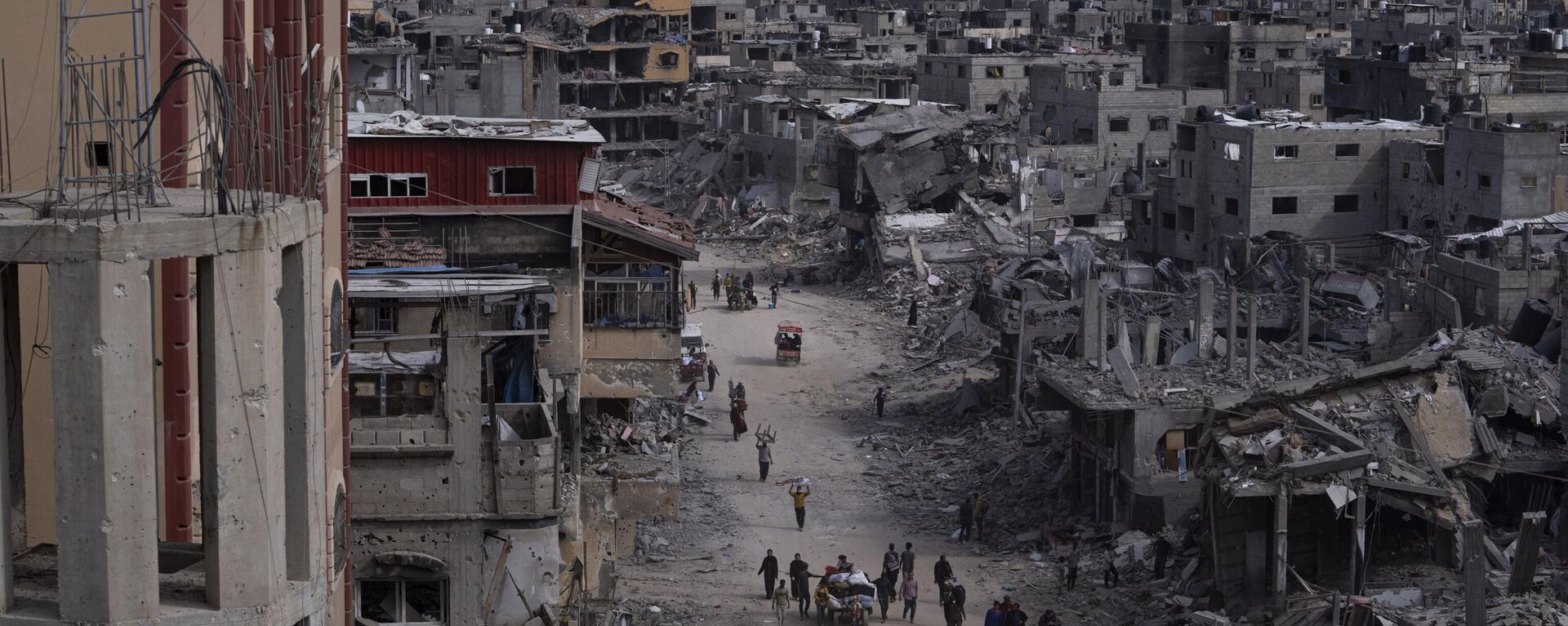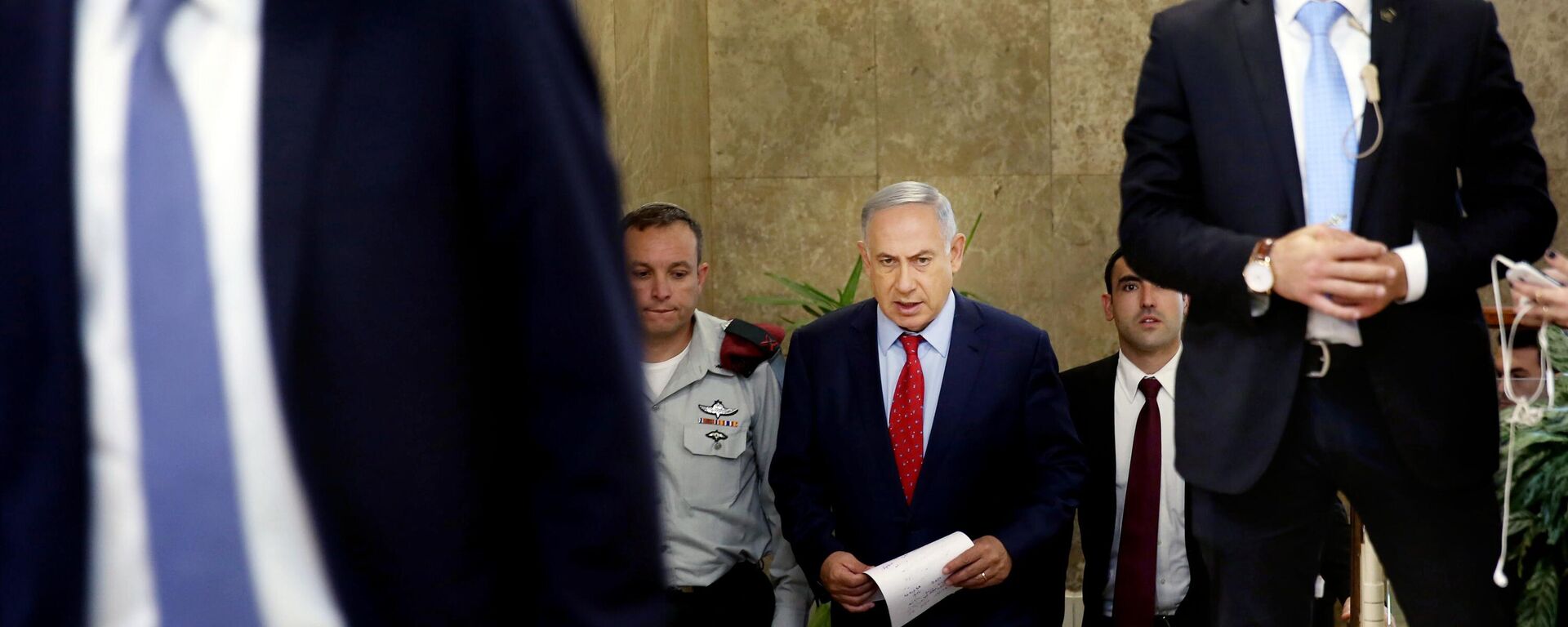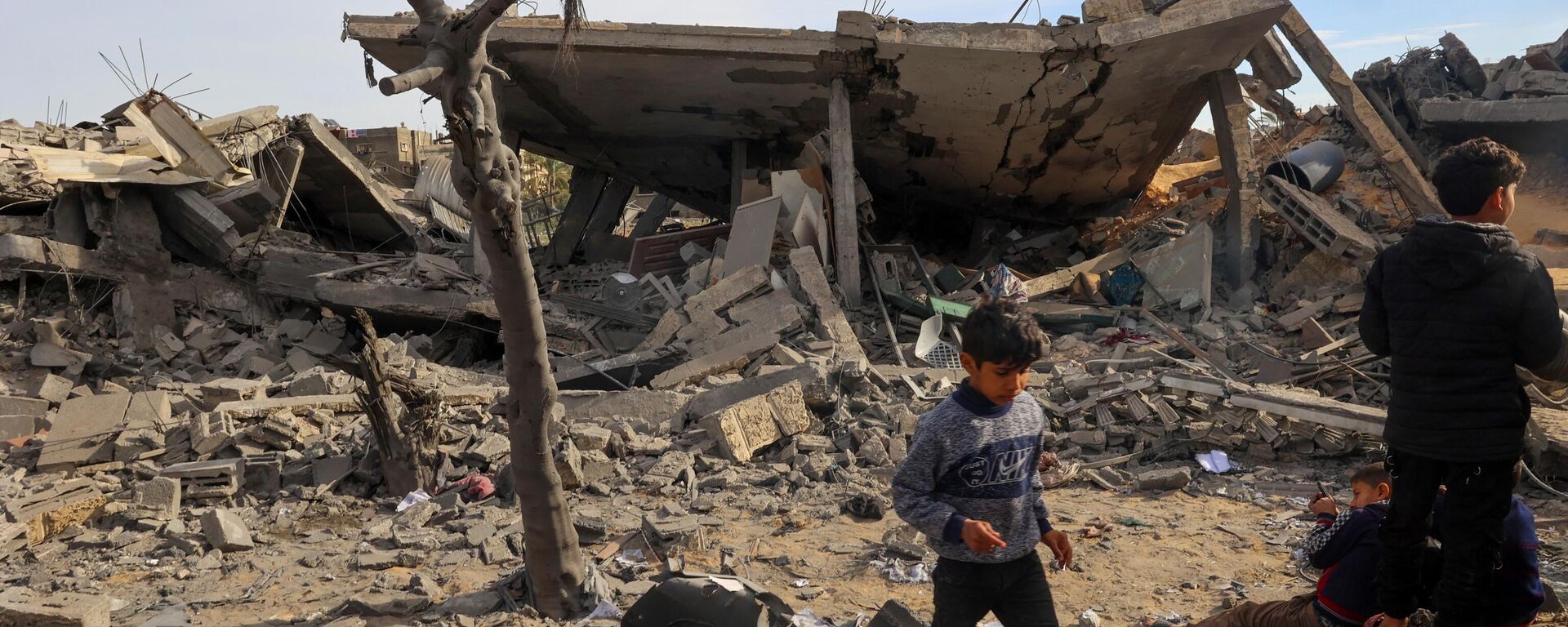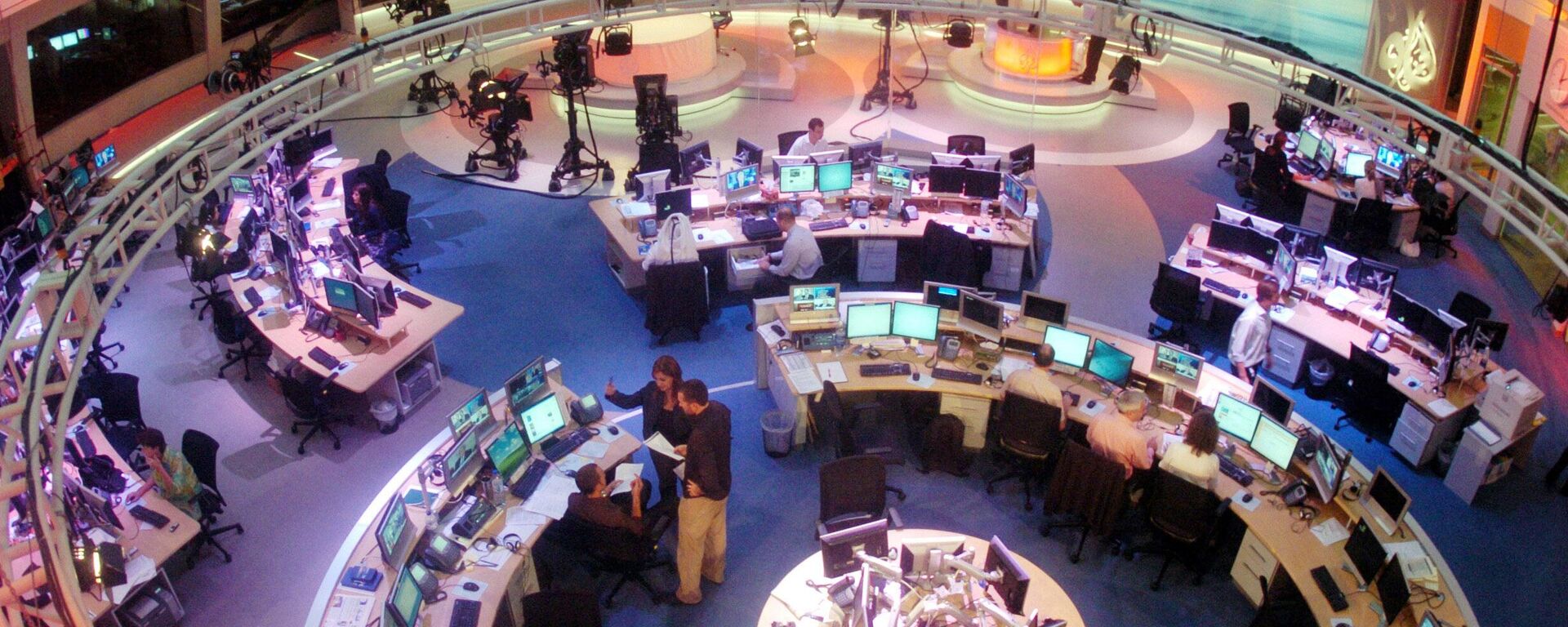https://sputnikglobe.com/20240508/idfs-strike-potential-will-be-rapidly-depleted-without-us-support---and-israel-knows-it-1118337634.html
IDF’s Strike Potential 'Will Be Rapidly Depleted' Without US Support - and Israel Knows It
IDF’s Strike Potential 'Will Be Rapidly Depleted' Without US Support - and Israel Knows It
Sputnik International
US media reported Monday that Washington had decided to hold off on the delivery of thousands of JDAM dumb-to-smart bomb kits and small diameter bombs to Israel, ostensibly amid displeasure over the IDF’s operations in Rafah, Gaza. Sputnik asked a pair of respected regional politics experts what it all means.
2024-05-08T15:44+0000
2024-05-08T15:44+0000
2024-05-08T18:34+0000
analysis
hasan unal
bader al-saif
us
joe biden
israel
rafah
washington
israel defense forces (idf)
hamas
https://cdn1.img.sputnikglobe.com/img/07e7/0c/04/1115374382_0:100:1974:1210_1920x0_80_0_0_30c6505852b7c6ee2614fd986526dfe9.jpg
The Israel Defense Forces has attempted to play down the significance of the hold up in US arms deliveries to Israel, with IDF spokesman Daniel Hagari assuring reporters on Wednesday that the allies will be able to resolve any disagreements “behind closed doors.”Israeli-US coordination has reached “a scope without precedent…in Israel’s history” over the course of the Gaza war, Hagari stressed, pointing to extensive coordination between IDF headquarters and United States Central Command, and saying that American “operational support” is even “more important than security assistance” for Israel.As far as the stalled bomb deliveries are concerned, Hagari said the IDF is “responsible for the security interests of Israel” but pays “attention to the US interests in the arena.”A senior White House official confirmed to Reuters on Tuesday that the US was holding up a shipment of 2,000 and 500-pound bombs to Israel over its attack on Rafah, telling the news agency that Tel Aviv’s plans, first hatched in April, prompted Washington to begin “to carefully review proposed transfers of particular weapons to Israel that might be used in Rafah.”The Gaza-Egypt border city of Rafah is now home to over one million Palestinian civilians, most of them refugees pushed out of other areas of the strip by the IDF. Israel began the ground invasion of the strategic territory on Monday after rejecting a ceasefire treaty with Hamas, seizing the Rafah border crossing through which the majority of humanitarian aid into Gaza traditionally arrives. Israel claims four of six Hamas battalions are present in the city, along with leaders, and “a significant number” of hostages.The row over Rafah is the first time Washington has held off on topping up arms deliveries to Israel since the start of the war last October, and comes despite Congress’s recent passage of a $95 billion aid package of mostly military assistance abroad, including $14.1 billion for Israel.White House Press Secretary Karine Jean-Pierre assured on Tuesday that US support for Israel remains “ironclad,” even as Washington seeks a “commitment” from Tel Aviv “in making sure civilian lives are protected.” US officials told Axios Tuesday that the Rafah operation is not viewed by President Biden as any sort of “breaking point” in relations with Tel Aviv, for so long as the operation remains “limited” and doesn’t “get out of control.”‘Significant Step’“Overall, what I would say, if the United States were to suspend large shipments to Israel, this would be a significant step on the part of the US government to restrain Israel,” Hasan Unal, professor of international relations at Ankara Baskent University, told Sputnik, commenting on the potential US-Israeli rift over weapons deliveries.It may also be the case that Washington has suspended the delivery of these particular weapons while quietly approving others, he warned, saying the “ambiguity” in US policy has always a factor that Israel has often taken advantage of. “We’ll have to wait and see,” the academic noted.In any case, regardless of Israeli chest thumping about its “independence” and “invincibility,” the US decision to scale back arms supplies would “have a significant impact on Israeli policy-making,” with Israel desperately reliant on US weapons aid going back to the Arab-Israeli wars of the 20th century.Unal also pointed out that despite the Biden administration’s general weakness before Tel Aviv over the course of the present crisis in Gaza, the United States historically has had “considerable leverage” on Israel when it wants to.In the 1980s, when Israel began its invasion of Lebanon, US President Ronald Reagan called up Prime Minister Rabin and told him to stop.Domestic pressure is likely to have played a major role in Washington’s move to scale back arms aid, Unal believes, pointing out that the near “rebellion”-like conditions at America’s college campuses protesting the Gaza war, and the general public’s focus on domestic problems, have played a role.“Yes, initially [after October 7, ed.] everybody acknowledged that Israel had the right to defend itself. But the unfolding events basically demonstrated that this was something far beyond anything that they could have thought of,” he said, referring to the indiscriminate Israeli attacks on civilian centers in Gaza, which have now killed or maimed over five percent of the strip’s pre-war population.Finally, there’s the factor of the upcoming elections and the “rapidly” changing voter profile in the United States, Unal believes.Too Little, Too Late?Kuwait University assistant professor and Arab Gulf States Institute non-resident fellow Bader Al-Saif fears the US decision to halt its heavy bomb deliveries may have come “too little, too late” to impact Israeli policy. “We do not know how significant this is until we see how impactful it will [be in relation] to other decisions. Will this become a one off episode or will it be recurring?” Prof. Al-Saif told Sputnik.The US move is “guided by domestic considerations in the US,” the academic explained. “It’s no hidden secret about the amount of student protests that are rocking across the US. And it’s no hidden secret that there are now an increasing number of congressmen and women who are publicly voicing their support for an end of US involvement in this war.”“They’ll be standing alone. The whole world is against the continuation of the war. The irony is, even Hamas has accepted the ceasefire terms two days ago. Even they accepted the terms [which] say we’re going to release all the hostages. So there’s a lot of pressure accumulating on Israel to respond responsibly…or else more bloodshed will come [to pass]. So it’s not prudent on anyone’s agenda to continue this bloodletting exercise,” the observer said.For now, the professor said that he will be waiting for an official confirmation to the anonymous administration official’s comments to Reuters from someone at the State Department or the Pentagon.
https://sputnikglobe.com/20240507/us-delays-sale-of-thousands-of-precision-guided-weapons-to-israel---reports-1118311261.html
https://sputnikglobe.com/20240508/us-report-on-israels-conduct-in-gaza-strip-delayed-indefinitely---reports-1118331255.html
https://sputnikglobe.com/20240508/us-senators-issue-mafia-style-threat-as-israeli-military-enters-rafah-1118328980.html
https://sputnikglobe.com/20240508/israel-doesnt-want-a-ceasefire-truce-talks-take-back-seat-as-rafah-attack-surges-1118323895.html
https://sputnikglobe.com/20240506/israel-bans-al-jazeera-and-raids-office-1118276646.html
israel
rafah
washington
Sputnik International
feedback@sputniknews.com
+74956456601
MIA „Rosiya Segodnya“
2024
News
en_EN
Sputnik International
feedback@sputniknews.com
+74956456601
MIA „Rosiya Segodnya“
Sputnik International
feedback@sputniknews.com
+74956456601
MIA „Rosiya Segodnya“
will israel commit genocide in rafah, why did us halt arms aid to israel
will israel commit genocide in rafah, why did us halt arms aid to israel
IDF’s Strike Potential 'Will Be Rapidly Depleted' Without US Support - and Israel Knows It
15:44 GMT 08.05.2024 (Updated: 18:34 GMT 08.05.2024) US media reported Monday that Washington had decided to hold off on the delivery of thousands of JDAM dumb-to-smart bomb kits and small diameter bombs to Israel, ostensibly amid displeasure over the IDF’s operations in Rafah, Gaza. Sputnik asked a pair of respected regional politics experts what it all means.
The Israel Defense Forces has attempted to play down the significance of the hold up in US arms deliveries to Israel, with IDF spokesman Daniel Hagari assuring reporters on Wednesday that the allies will be able to resolve any disagreements “behind closed doors.”
Israeli-US coordination has reached “a scope without precedent…in Israel’s history” over the course of the Gaza war, Hagari
stressed, pointing to extensive coordination between IDF headquarters and United States Central Command, and saying that American “operational support” is even “more important than security assistance” for Israel.
As far as the stalled bomb deliveries are concerned, Hagari said the IDF is “responsible for the security interests of Israel” but pays “attention to the US interests in the arena.”
A senior White House official confirmed to Reuters on Tuesday that the
US was holding up a shipment of 2,000 and 500-pound bombs to Israel over its attack on Rafah, telling the news agency that Tel Aviv’s plans, first hatched in April, prompted Washington to begin “to carefully review proposed transfers of particular weapons to Israel that might be used in Rafah.”
“As a result of that review, we have paused one shipment of weapons last week. It consists of 1,800 2000-lb bombs and 1,700 500-lb bombs,” the anonymous official said, adding that the White House was “especially focused on the end-use of the 2,000-lb bombs and the impact they could have in dense urban settings as we have seen in other parts of Gaza.”
The Gaza-Egypt border city of Rafah is now home to over one million Palestinian civilians, most of them refugees pushed out of other areas of the strip by the IDF. Israel began the
ground invasion of the strategic territory on Monday after rejecting a ceasefire treaty with Hamas, seizing the Rafah border crossing through which the majority of humanitarian aid into Gaza traditionally arrives. Israel claims four of six Hamas battalions are present in the city, along with leaders, and “a significant number” of hostages.
The row over Rafah is the first time Washington has held off on topping up arms deliveries to Israel since the start of the war last October, and comes despite Congress’s recent passage of a $95 billion aid package of mostly military assistance abroad, including $14.1 billion for Israel.
White House Press Secretary Karine Jean-Pierre assured on Tuesday that US support for Israel remains “ironclad,” even as Washington seeks a “commitment” from Tel Aviv “in making sure civilian lives are protected.” US officials
told Axios Tuesday that the Rafah operation is not viewed by President Biden as any sort of “breaking point” in relations with Tel Aviv, for so long as the operation remains “limited” and doesn’t “get out of control.”
“Overall, what I would say, if the United States were to suspend large shipments to Israel, this would be a significant step on the part of the US government to restrain Israel,” Hasan Unal, professor of international relations at Ankara Baskent University, told Sputnik, commenting on the potential US-Israeli rift over weapons deliveries.
“I think the motive to suspend these arms shipments to Israel by the US government is that they want to influence Israeli policymaking. They want to restrain Israel from an onslaught on Gaza or on Rafah in particular, because the US government is well aware that it would turn into an undeniable genocide. And that would make the United States a clearly complicit party…The present US administration cannot afford to have all that criticism directed at itself at a time of elections,” Unal said.
It may also be the case that Washington has suspended the delivery of these particular weapons while quietly approving others, he warned, saying the “ambiguity” in US policy has always a factor that Israel has often taken advantage of. “We’ll have to wait and see,” the academic noted.
In any case, regardless of Israeli chest thumping about its “independence” and “invincibility,” the US decision to scale back arms supplies would “have a significant impact on Israeli policy-making,” with Israel desperately reliant on US weapons aid going back to the Arab-Israeli wars of the 20th century.
“So if the United States were to suspend, for one reason or another, the arms and ammunition supplies to Israel, Israel’s stocks would get depleted in a short while. And Israel knows this very well,” the academic stressed.
Unal also pointed out that despite the Biden administration’s general weakness before Tel Aviv over the course of the present crisis in Gaza, the United States historically has had “considerable leverage” on Israel when it wants to.
In the 1980s, when Israel began its invasion of Lebanon, US President Ronald Reagan called up Prime Minister Rabin and told him to stop.
“Minutes later Israel stopped…So basically, the United States does have considerable leverage over Israel, particularly in terms of shipments of military supplies. But whether or not a US government uses this leverage in order to restrain Israel depends on quite a number of things,” the professor explained.
Domestic pressure is likely to have played a major role in Washington’s move to scale back arms aid, Unal believes, pointing out that the near “rebellion”-like conditions at America’s college campuses protesting the Gaza war, and the general public’s focus on domestic problems, have played a role.
“Yes, initially [after October 7, ed.] everybody acknowledged that Israel had the right to defend itself. But the unfolding events basically demonstrated that this was something far beyond anything that they could have thought of,” he said, referring to the indiscriminate Israeli attacks on civilian centers in Gaza, which have now killed or maimed over five percent of the strip’s pre-war population.
Finally, there’s the factor of the upcoming elections and the “rapidly” changing voter profile in the United States, Unal believes.
“Now, the US public is more concerned about daily life, about inflation, about joblessness and job security and all sorts of economic problems. They can’t understand why the US government is pouring its money, the taxpayers money, its resources, into Israel and also, for that matter, into Ukraine. There is that problem, I think, in the West in general,” the professor said.
Kuwait University assistant professor and Arab Gulf States Institute non-resident fellow Bader Al-Saif fears the US decision to halt its heavy bomb deliveries may have come “too little, too late” to impact Israeli policy. “We do not know how significant this is until we see how impactful it will [be in relation] to other decisions. Will this become a one off episode or will it be recurring?” Prof. Al-Saif told Sputnik.
The US move is “guided by domestic considerations in the US,” the academic explained. “It’s no hidden secret about the amount of student protests that are rocking across the US. And it’s no hidden secret that there are now an increasing number of congressmen and women who are
publicly voicing their support for an end of US involvement in this war.”
“And second, don’t forget, Rafah has the biggest density of Palestinians in Gaza right now. Just the simple fact of pushing them out of all other districts of Gaza and [gathering] them in Rafah, going in there and bombing it, this is already a genocide in the making,” Prof. Al-Saif warned, emphasizing that the US would “look very bad,” both internationally and at home, if it continued to aid Israel at this particular moment.
“They’ll be standing alone. The whole world is against the continuation of the war. The irony is, even Hamas has accepted the ceasefire terms two days ago. Even they accepted the terms [which] say we’re going to release all the hostages. So there’s a lot of pressure accumulating on Israel to respond responsibly…or else more bloodshed will come [to pass]. So it’s not prudent on anyone’s agenda to continue this bloodletting exercise,” the observer said.
Prof. Al-Saif agrees with the idea that US assistance is very significant to keeping Israel’s military in play, noting, for example, that during Iran’s recent retaliatory missile and drone strike, that “without US support, and the backing of the UK alongside that, they wouldn’t have intercepted many of those rockets that came from the Iranian side.”
For now, the professor said that he will be waiting for an official confirmation to the anonymous administration official’s comments to Reuters from someone at the State Department or the Pentagon.

